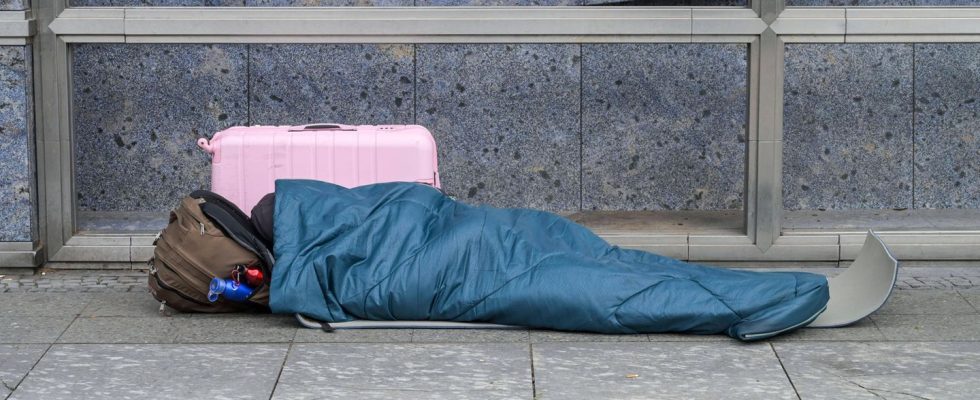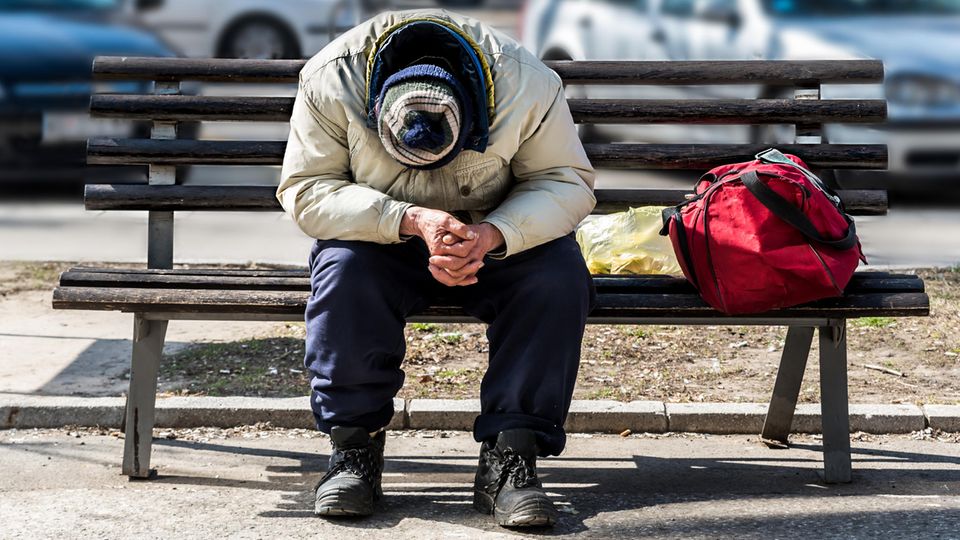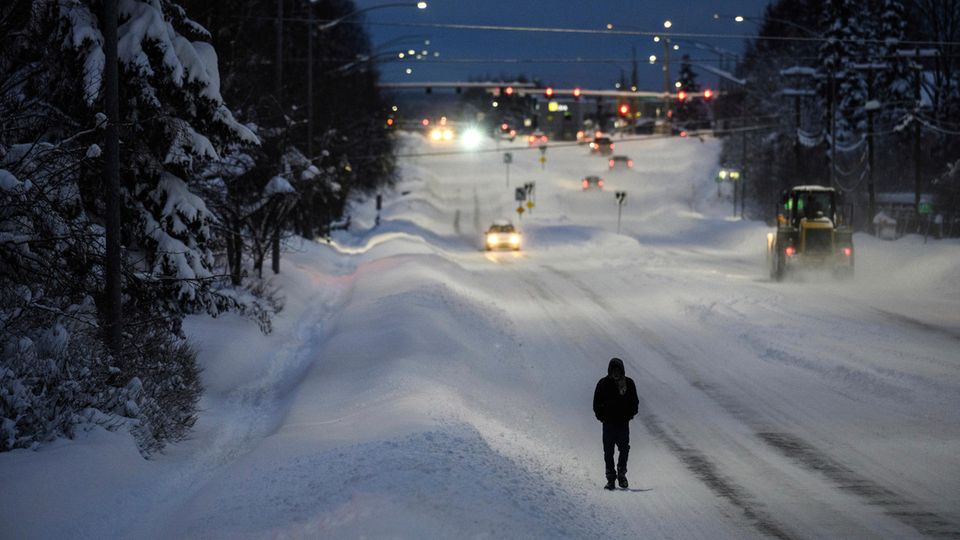Social policy
Finland as a role model? This is how Germany wants to combat homelessness
Hundreds of thousands of people in Germany do not have their own apartment. The action plan against homelessness approved by the Federal Cabinet attempts to change this.
© Schoening / Imago Images
The goal is ambitious: everyone in Germany should have access to an apartment by 2030. This is what an action plan from the Minister of Construction envisages. But is this the solution to homelessness?
The federal government wants to ensure that all homeless people have access to an apartment by 2030. The cabinet decided on one presented by Construction Minister Klara Geywitz (SPD). Action plan. The key point is the creation of more affordable housing – however, exactly how this should be achieved remains vague in the guidelines.
In addition, standards for accommodation in emergency shelters should be developed that give those affected more privacy. Among other things, women and men should be able to be accommodated separately if they want. It should also be ensured that all homeless people have health insurance.
Only estimates of the number of homeless people
Nobody knows exactly how many people in Germany have no apartment. The Federal Working Group for Homeless Assistance (BAG W) is going into action most current estimates assumes that over the course of 2022 – more recent figures are not currently available – a total of 607,000 people were affected – some temporarily, some for months or the entire year. This includes people who sleep outdoors, in (subway) stations, tents or demolished houses, as well as those who stay with friends and relatives.
Before presenting the National Action Plan against Homelessness, the German Tenants’ Association (DMB) described the steps it provided for overcoming homelessness and homelessness as insufficient. The plans are fundamentally to be welcomed, said Tenants’ Association President Lukas Siebenkotten to the newspapers of the Editorial Network Germany (RND). “However, the action plan’s proposed measures are not sufficient to overcome homelessness and homelessness.”
There is a lack of affordable housing in Germany and rents have been rising for years. “The listed federal financial aid for social housing is not sufficient to stop the decline in the social housing stock,” Siebenkotten continued. “Unfortunately, there should be no impulses in tenancy law that go beyond the coalition agreement to reduce housing costs.”
Finland as a role model?
Finland is much more concrete in its fight against homelessness. The “Housing First” project is being implemented there. Homeless people – who are Finnish citizens – receive an apartment without any requirements. In other words, without people affected by addiction problems having to go through withdrawal first. The homeless only have to accept offers of help and advice from social workers. The social workers then help with applications, administrative procedures and everyday difficulties. This makes it easier to find a job and tackle other everyday difficulties. So the first step is your own four walls – “Housing First” – everything else comes after that.
During a trip to Finland in 2023, Minister Geiwitz learned how the project could be implemented nationwide: There was a political consensus over many legislative periods – across all parties. After deaths in the 1980s, when several homeless people died due to the cold, there was a consensus in Finnish society that things couldn’t go on like this.
Problem: housing construction
Politicians, together with municipalities, welfare associations, companies from the construction industry and the construction union, founded the Y Foundation for affordable housing. As a result, it ensured there was enough accommodation available and is now Finland’s fourth largest landlord.
However, a 1:1 copy of Finland’s policy would not be able to be implemented so quickly – due to the lack of free apartments in Germany. The construction industry expects around 235,000 apartments to be completed in 2024, which would be around 25,000 fewer than in the previous year. The federal government originally set itself the goal of building 400,000 new apartments every year.
The necessary houses in Finland, on the other hand, are not only financed by the private sector, but also by the state, non-governmental organizations and with profits from the gambling sector, which is state-organized in Finland. The profits from this amounted to, for example, in 2023 a good billion eurosin Germany it is assumed that the state generates around five billion euros in annual income from this area.
Sources: BAG W, “Contrast”, “Mercury”, “district newspaper”, daily Newswith DPA and AFP, RND (paid content)





